
Filter News
Area of Research
- Advanced Manufacturing (2)
- Biology and Environment (8)
- Clean Energy (29)
- Fuel Cycle Science and Technology (1)
- Fusion and Fission (11)
- Fusion Energy (1)
- Isotope Development and Production (1)
- Isotopes (2)
- Materials (20)
- Materials for Computing (2)
- National Security (10)
- Neutron Science (5)
- Nuclear Science and Technology (8)
- Sensors and Controls (1)
- Supercomputing (30)
News Type
News Topics
- (-) Advanced Reactors (10)
- (-) Decarbonization (19)
- (-) Frontier (14)
- (-) Grid (15)
- (-) ITER (2)
- (-) Machine Learning (13)
- (-) Microscopy (16)
- (-) Nuclear Energy (26)
- (-) Quantum Computing (9)
- (-) Security (11)
- 3-D Printing/Advanced Manufacturing (44)
- Artificial Intelligence (29)
- Big Data (8)
- Bioenergy (24)
- Biology (22)
- Biomedical (17)
- Biotechnology (7)
- Buildings (13)
- Chemical Sciences (29)
- Clean Water (1)
- Climate Change (22)
- Composites (9)
- Computer Science (57)
- Coronavirus (17)
- Critical Materials (11)
- Cybersecurity (17)
- Education (3)
- Element Discovery (1)
- Energy Storage (41)
- Environment (36)
- Exascale Computing (9)
- Fossil Energy (1)
- Fusion (14)
- High-Performance Computing (26)
- Isotopes (17)
- Materials (59)
- Materials Science (50)
- Mercury (2)
- Microelectronics (1)
- Molten Salt (2)
- Nanotechnology (26)
- National Security (18)
- Net Zero (3)
- Neutron Science (49)
- Partnerships (27)
- Physics (24)
- Polymers (12)
- Quantum Science (26)
- Renewable Energy (1)
- Simulation (8)
- Space Exploration (3)
- Statistics (2)
- Summit (20)
- Sustainable Energy (31)
- Transformational Challenge Reactor (4)
- Transportation (25)
Media Contacts
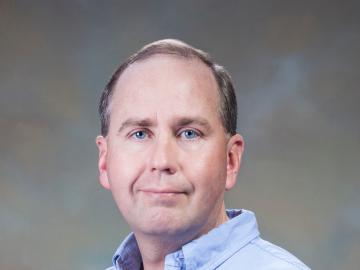
ORNL has named Michael Parks director of the Computer Science and Mathematics Division within ORNL’s Computing and Computational Sciences Directorate. His hiring became effective March 13.
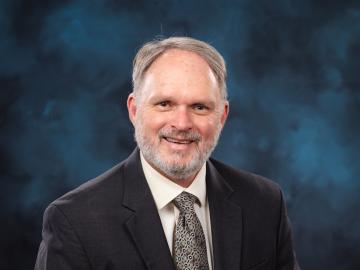
Mickey Wade has been named associate laboratory director for the Fusion and Fission Energy and Science Directorate at the Department of Energy’s Oak Ridge National Laboratory, effective April 1.

U2opia Technology, a consortium of technology and administrative executives with extensive experience in both industry and defense, has exclusively licensed two technologies from ORNL that offer a new method for advanced cybersecurity monitoring in real time.

A partnership of ORNL, the Tennessee Department of Economic and Community Development, the Community Reuse Organization of East Tennessee and TVA that aims to attract nuclear energy-related firms to Oak Ridge has been recognized with a state and local economic development award from the Federal Laboratory Consortium.

Paul Langan will join ORNL in the spring as associate laboratory director for the Biological and Environmental Systems Science Directorate.
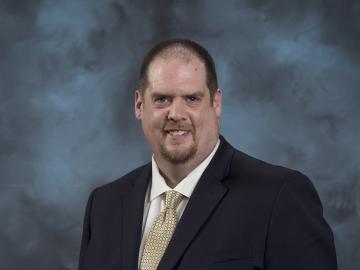
Jeremy Busby has been named associate laboratory director for the Fusion and Fission Energy and Science Directorate at the Department of Energy’s Oak Ridge National Laboratory, effective Jan. 1.

The Oppenheimer Science and Energy Leadership Program has selected Oak Ridge National Laboratory’s Jens Dilling and Christian Petrie as fellows for its 2023 cohort.
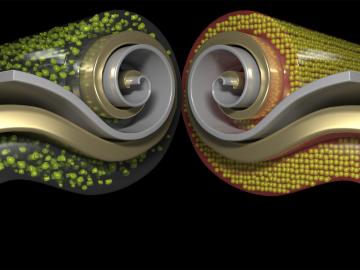
Researchers at ORNL have developed a new method for producing a key component of lithium-ion batteries. The result is a more affordable battery from a faster, less wasteful process that uses less toxic material.
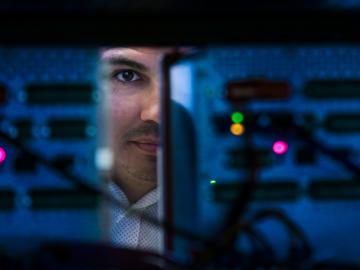
Although blockchain is best known for securing digital currency payments, researchers at the Department of Energy’s Oak Ridge National Laboratory are using it to track a different kind of exchange: It’s the first time blockchain has ever been used to validate communication among devices on the electric grid.
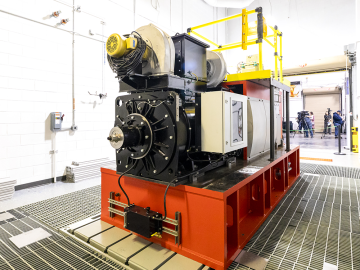
As the United States shifts away from fossil-fuel-burning cars and trucks, scientists at the Department of Energy’s Oak Ridge and Argonne national laboratories are exploring options for another form of transportation: trains. The research focuses on zero-carbon hydrogen and other low-carbon fuels as viable alternatives to diesel for the rail industry.


